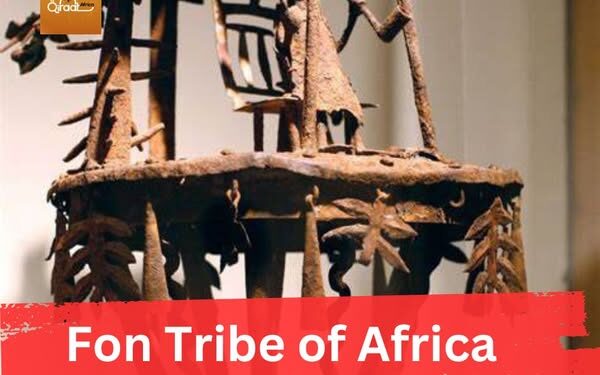The Fon people, sometimes known as Fon nu, Agadja, or Dahomey, are a large African ethnic and linguistic group. They are the largest ethnic group in Benin, primarily in the south; they also live in southwest Nigeria and Togo. Their overall population is estimated to be at 3,500,000 people, and they speak the Fon language, which is one of the Gbe languages.
The Fon community, as the largest ethnic group in Benin, has experienced significant changes in their traditional practices due to the impact of colonialism and modernization. These changes, however, have posed various challenges to the community.
The Fon people maintained an oral tradition civilization until the late medieval age. According to oral histories and legends, the Fon people originated in what is now Tado, a small Aja town near the Togo-Benin border. Their first rulers were members of the ruling elite in the Aja kingdom of Allada (also known as Ardra kingdom).
The Fon people’s history is linked to the Dahomey kingdom, which was well organized by the 17th century but had more ancient origins with the Aja people. The Fon people were traditionally an oral society with a developed polytheistic religion system. They were known by early 19th-century European traders for their N’Nonmiton practice, or Dahomey Amazons, which empowered their women to serve in the military, and who later opposed the French colonial forces in 1890.
The Fon developed cities such as Abomey, Dahomey’s historical capital, on what Europeans referred to as the Slave Coast. These cities became key commercial hubs for the slave trade. A large section of the sugar plantations in the French West Indies, particularly in Haiti, the Dominican Republic, and Trinidad, were populated by slaves who traveled from the Slave Coast via the regions of the Ewe and Fon people.
Fon people speak Fon language. Fon (native name Fon gbè, pronounced [fɔ̃̄ɡ͡bè]) is a member of the Gbe language cluster and the Volta-Niger branch of the Niger-Congo languages. The Fon people are the primary speakers of Fon in Benin, with around 1.7 million speakers. Fon, like the other Gbe languages, is an analytic language with SVO basic word order. It has the following dialects: Agbome, Arohun, Gbekon, and Kpase.
The primary Fon social unit is the polygynous family, each woman and her children occupying a house within a compound. A lineage, consisting of families related through male descent, usually occupies several neighboring compounds; the eldest male member serves as the lineage head.
Patrilineal clans dispersed throughout Dahomey were formerly important, but clan organization has broken down in recent times. The worship of ancestors, however, remains a major feature of Fon religion.



























































